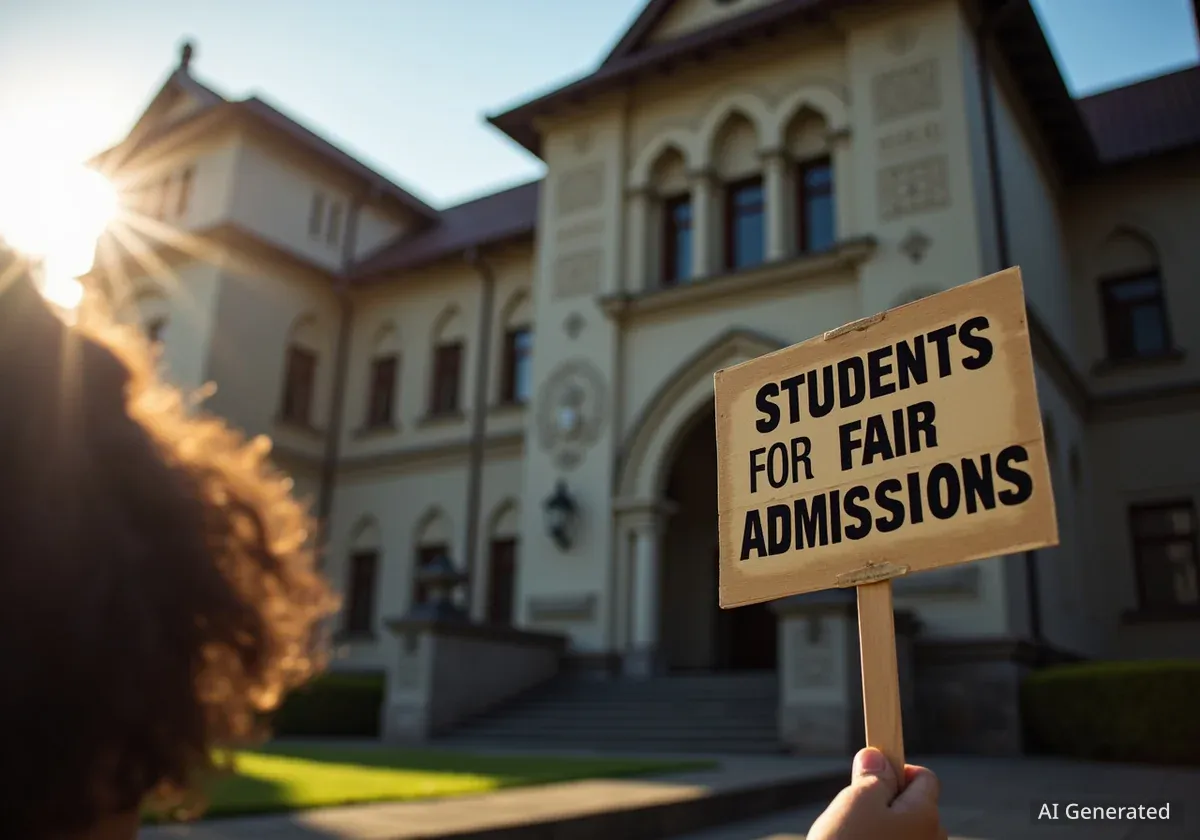Kamehameha Schools, a private educational institution in Hawaii, is facing a significant legal challenge over its long-standing admissions policy. A lawsuit filed by the group Students for Fair Admissions (SFFA) alleges that the school's practice of giving preference to Native Hawaiian applicants is an illegal form of racial discrimination.
The institution has vowed to defend its policy, which it describes as essential to fulfilling the legacy of its founder, Princess Bernice Pauahi Bishop. The legal battle is drawing sharp reactions from community leaders, graduates, and politicians across the state, setting the stage for a contentious debate over heritage, education, and civil rights.
Key Takeaways
- Students for Fair Admissions (SFFA) has filed a lawsuit claiming Kamehameha Schools' admissions policy is discriminatory.
- The lawsuit demands that the school end its preference for Native Hawaiian applicants.
- Kamehameha Schools has stated it will vigorously defend its policy, citing the will of its founder.
- Community leaders and politicians have expressed strong support for the school, arguing Native Hawaiians are a distinct political group, not just a racial one.
Details of the Legal Challenge
The lawsuit, filed by Students for Fair Admissions, contends that the school's admissions policy is a form of illegal racial segregation. The filing argues that the preference given to Native Hawaiian applicants violates federal civil rights law. The legal action was brought on behalf of two families who wish for their children to attend the schools but are not of Native Hawaiian descent. According to the court documents, these families have chosen to remain anonymous out of fear of potential retaliation.
The lawsuit calls for the court to intervene and order Kamehameha Schools to "desegregate with all deliberate speed." This language echoes historical legal battles over school integration in the United States.
SFFA, led by legal activist Edward Blum, has a history of challenging affirmative action and race-conscious policies in education. The organization was notably successful in a recent Supreme Court case that significantly altered the use of race in college admissions nationwide.
A History of Legal Scrutiny
This is not the first time Kamehameha Schools' admissions policy has been challenged. The current lawsuit references a previous case that resulted in a $7 million settlement 17 years ago. The filing also notes that between 1966 and 2009, only two non-Native Hawaiian students were reportedly admitted to the schools, a statistic used to underscore the policy's impact.
The School's Firm Defense
In response to the lawsuit, Kamehameha Schools issued a strong statement affirming its commitment to its mission. The school declared it is prepared for the legal fight and will use all available resources to protect its founder's directive.
"We are ready for this challenge. We are resolved to vigorously defend our admissions policy and will engage every legal and operational resource to protect Ke Aliʻi Pauahi’s kauoha. The facts and the law are on our side, and we are confident that we will prevail."
Following the announcement of the lawsuit, the school called upon its supporters and the broader community to gather for an event at ʻIolani Palace. The gathering, termed an "ʻAha Koa," was intended as a show of unity and support for the institution's legacy and its continuation.
The school's mission is rooted in the will of Princess Bernice Pauahi Bishop, who established the schools in the 19th century to educate children of Hawaiian ancestry and restore a sense of hope and pride to her people.
Community and Political Reaction
The lawsuit has ignited a passionate response from graduates, community leaders, and political figures in Hawaii. Many supporters argue that the legal challenge misinterprets the unique status of Native Hawaiians.
Kuhio Lewis, CEO of the Council for Native Hawaiian Advancement, explained that Native Hawaiians are recognized as more than a racial group. "Native Hawaiians are a political entity. We are recognized in over 150 federal statutes and many other forms of recognition so we are not a race. We are a political class of America," Lewis stated. This distinction is central to the argument that the school's policy is legally sound.
Bipartisan Political Support
In a rare show of unity, Hawaii's House and Senate Republican Caucuses issued a joint statement supporting Kamehameha Schools. They framed the issue as one of private educational freedom, stating the school "has every right to fulfill Princess Pauahi’s legacy by serving Native Hawaiian children."
Criticism of the Plaintiff
The lawsuit has also brought personal criticism against SFFA's president, Edward Blum. State Senator Jarrett Keohokalole dismissed Blum's claims of receiving hostile messages as a result of the lawsuit.
"He’s not a victim. He’s a rich legal activist in Virginia being bankrolled by billionaires," Keohokalole said, questioning the motives behind the legal action against a private trust established to help Native Hawaiians.
The lawsuit mentions that Blum has faced a barrage of hostile communications, forcing him to change his contact information. It also names several Hawaii lawmakers, including both Democrats and Republicans, for their public statements and actions related to the case.
The Broader Implications
The outcome of this lawsuit could have far-reaching consequences for institutions founded to serve specific indigenous or ethnic communities. Supporters of Kamehameha Schools view this legal battle as a defense of the right of a private entity to fulfill its foundational mission, particularly one aimed at rectifying historical disadvantages faced by an indigenous population.
Conversely, SFFA and its supporters argue that the case is a straightforward matter of ensuring equal opportunity for all children, regardless of their racial or ethnic background. They contend that any policy that gives preference based on ancestry is inherently discriminatory and has no place in modern American society.
As the legal process unfolds, the case will be closely watched not only in Hawaii but across the nation, as it touches upon complex issues of indigenous rights, educational equity, and the interpretation of civil rights law in the 21st century.





